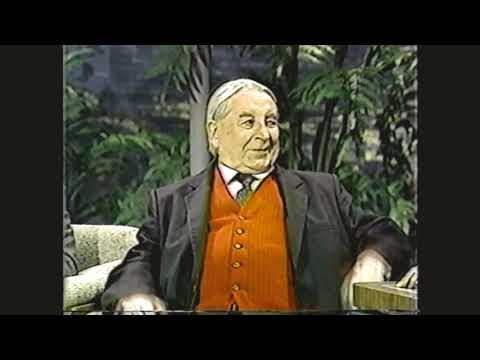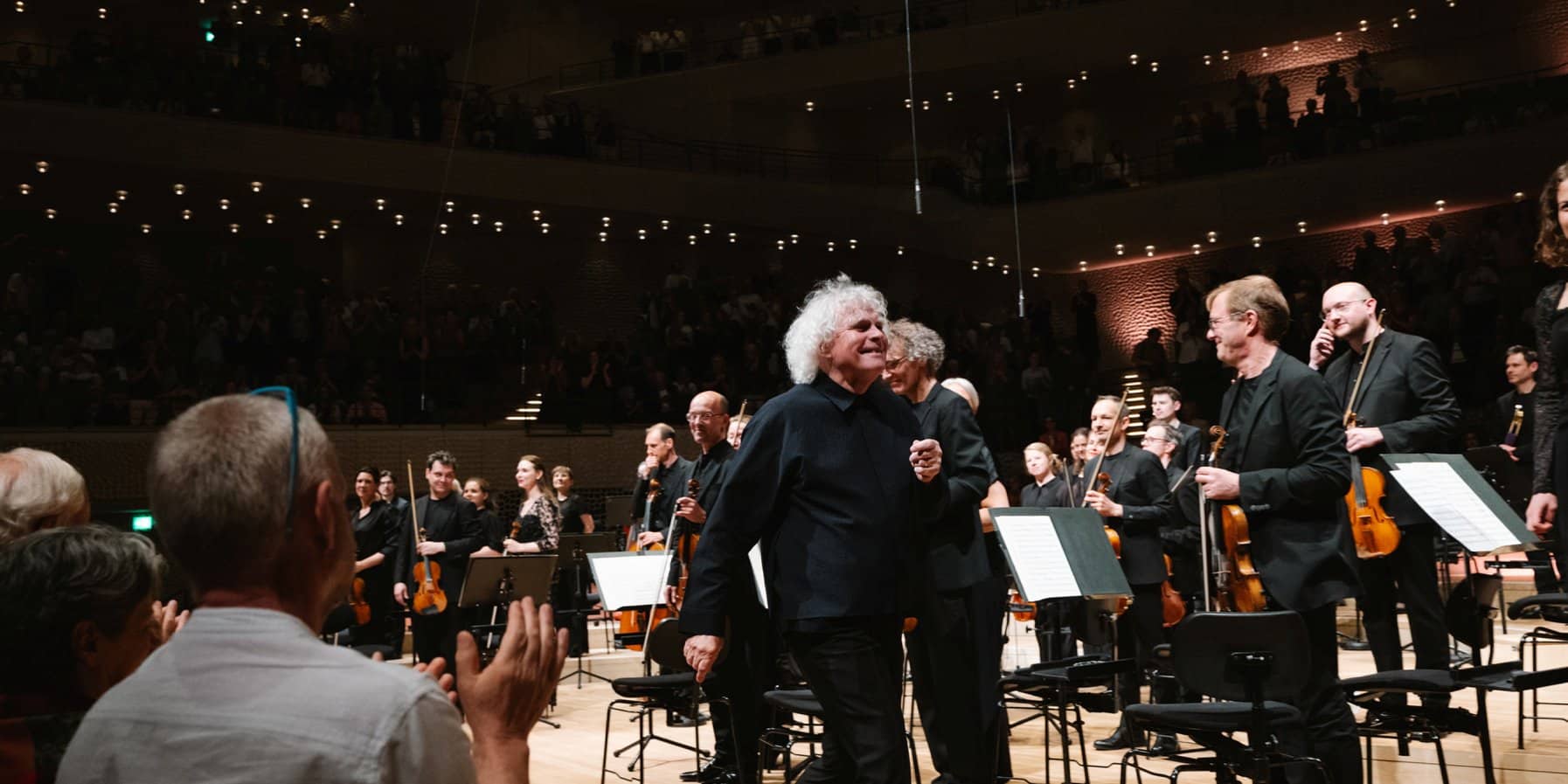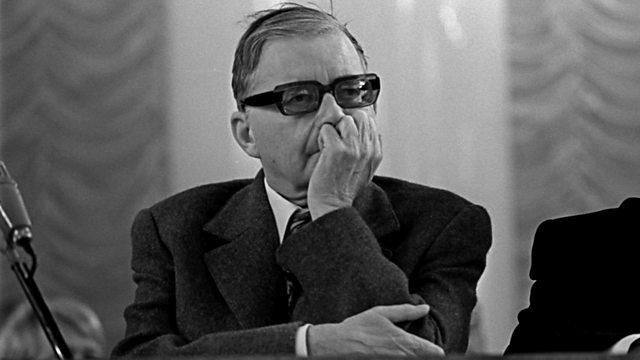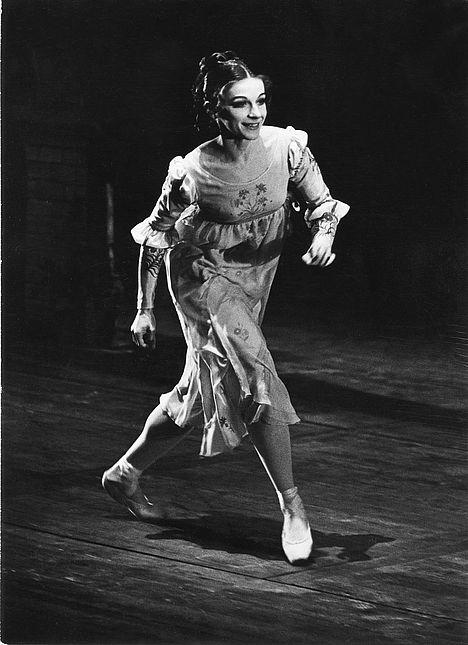The man who played Chopin with an orange
mainFrom the deepest recesses of Youtube, enjoy this astonishing interview with Nicolas Slonimsky, conductor, musicologist and author – and more fun than all three rolled into one.
I dropped into his house once on my way to LA airport and nearly missed my plane in the midst of his flights of fantasy.
Don’t miss his orange-playing shtick.






Author of the infamous “Lexicon of Musical Invective”. Frank Zappa gave him a featured cameo appearance at one his concerts – UCLA, I believe.
That book (1953 + numerous reprints), which is very informative and hilarious in many respects, had also the unfortunate effect of music critics becoming extremely cautious and positive at premieres of new works, fearing they would get into the next edition and acquire immortality as a fool. So, that is the main reason that so many contemporary composers get away with the most nonsensical things.
Slonimsky was a brilliant man.
when I read “orange” I thought of that famous scene from “Charade” with Audrey 😉 The final scene of that footage is even funnier
92 years of age here, and with more life in him than most half his age.
Indeed. But it depends on which half one’s age really is.
Now I know where Seinfeld stole Kramer’s Coffee table book from!
Absolutely hilarious! Thank you for posting this – it has made my day.
“I’m not suicidal. I DRIVE people to suicide.”
Perhaps only Nicolas Slonimsky could have come up with that line!
He was one of the great historians of music, and a wonderful raconteur. If you’ve never read his collection “A Lexicon of Musical Invective”, a collection of bad reviews of great music, you are in for a treat.
The Carson audience was obviously unfamiliar with the Chopin etude, or they would have laughed out loud like I did. I wonder how the piano tech felt about cleaning the orange off the piano after the gig!
Delightful.
When I was a teen-aged music student, fairly new to New York, I found myself during the intermission of a concert in Alice Tully Hall (Lincoln Center) in a three-way conversation with none other than Nicolas Slonimsky and Alice Tully. I no longer remember the topic of conversation nor how I had even gotten into it, but I DO remember that for the most part, Ms. Tully and I played the role as interviewer and audience to Slonimsky, enjoying every moment of it, only being pulled away by the bell. Of course, during the second half of the concert (also no longer remembered) I do remember asking myself over and over again “Why didn’t I ask him about Charles Ives, why didn’t I ask?” I looked for him after the concert but by then he had disappeared into the crowd or – just as likely – was entertaining another informal audience.
What would you have asked about Ives, whom I’m often considered 4th rate.
He was important at a time when hardly anyone knew who Ives was and in getting Ives to put his Three Places in New England into performing shape, getting it published, and performing it throughout Europe with his chamber orchestra. One of his first champions. If you don’t know this work, you might look it up. There are now recordings of the restored original version for large orchestra. It might change your mind.
I am truly shocked to read that someone claims that Ives was 4th rate. Fourth rate! Of course he was 6th rate.
I remember seeing this interview at the time; what a hoot! And he knew exactly how to play off Johnny Carson (and there was no better straight man than Carson). Much as I like today’s late-night hosts – esp. Stephen Colbert – I can’t imagine any of them giving 13 minutes to someone like Slonimsky today.
A truly remarkable genius. What a fun interview. I met him in 1988 when he visited SMU (Dallas) where I was a grad student. His entries in Baker’s were full of little humorous twists that only a musician would appreciate while it kept historical accuracy for readers.
He is wrong on one point. Boulez (who I was fortunate to play under) was equally adept at conducting mixed meters with both hands independent from each other.
Nice video. Now we know Slonimsky did not have perfect pitch.
High C, not according to Doc S.
Doc cracked the note before settling on the pitch and I think that Slonimsky was thrown by that. He had perfect pitch.
Also, remember, Doc may have been playing on a Bb trumpet and Slonimsky heard the actual pitch but Doc may have forgot to transpose before responding.
Both Doc and Slonimsky are/were wonderful first rate musicians but this was a bit awkward due to the possible issues around error involved in the spontaneous nature of the prank
Slonimsky made a mistake and did not have perfect pitch; it’s that simple. Doc is a more accomplished musician than you give him credit for.
Absolutely fantastic to see this!!!
We’ve all heard of the “Thesaurus,” we’ve all owned “Baker’s,” and we’ve all read “Lexicon of Musical Invective” (especially us composers, as ammunition). My favorite Slonimsky tome is the little “Road to Music,” which introduced me to classical music as a high-schooler. Among its many Slonimsky-isms, it includes the poem “The Mad Celesta Player”; perhaps some SD reader can reproduce it here.
Slonimsky’s article “Sex and the Music Librarian” is also a lot of fun, not only for librarians.
I highly recommend his delightful autobiography: “Perfect Pitch: A Life Story”. A great read from a very wise and humane man. It has one of the funniest jokes about the Russian Revolution (which he lived through), but I won’t give it away. I wish I still have a copy of this book.
When he was teaching Russian at Harvard, he told his students this tip to help them remember: Catherine the Great had several lover generals named Longinov, Bogdanoff, Stroganoff, Putiatin. So Catherine says: “you are long enough, big enough, strong enough, so put it in.”
Slsonimsky elsewhere told some good Koussevitzky stories from when he worked with him as”musical secretary”, playing orchestral scores on piano while K. learned them. I didn’t know of Slonimsky’s earlier connection with Eastman and Russian tenor Vladimir Rosing until I looked him up’, learning also that he founded the Boston Chamber players and led remieres of Ives’s “Three Places in New England” and Edgard Varese’s “Ionisations” for 13 percussionists.
He was 92 when Johnny Carson interviewed him and lived for another decade. His nephew, also named Nikolai Slonimsky, was a Soviet composer in Leningrad/St. Petersburg.
No, the first name of his nephew the composer was not Nikolai. It was Sergei (Сергей) – Sergei Slonimsky.
Hilarious except for the orange which really is a desecration of Chopin.
Orange you a snob.
chico marx did it before him
I thought it was Lang Lang’s Idea…
https://www.youtube.com/watch?v=oiziGLe1jBw
I visited Nicolas at his home in the early 1970s and witnessed his virtuosity with the orange. He was showing off a bit and the orange broke all over the keyboard. I had never laughed so hard while shouting bravo!